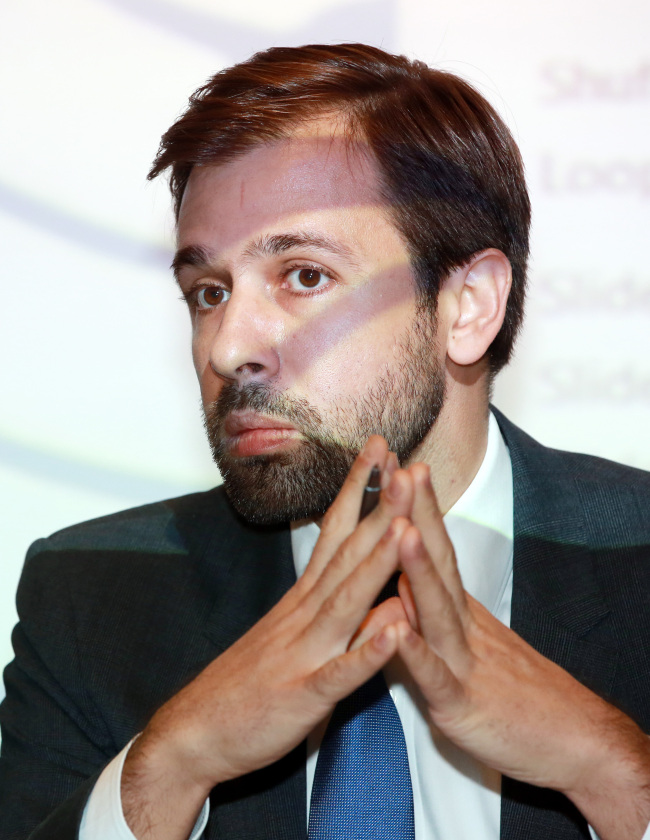A United Nations special investigator on Friday expressed concerns over the Korean government’s insufficient measures that have left a huge burden on Korean industrial accident victims to prove the causality between their diseases and work conditions by themselves.
 |
| Baskut Tuncak (Yonhap) |
Baskut Tuncak, the U.N. Special Rapporteur on human rights and hazardous substances and wastes, released a preliminary report after investigating a toxic humidifier tragedy and the deaths of Samsung Electronics semiconductor factory workers in Korea.
The toxic humidifier Oxy Ssak Ssak, manufactured by Oxy Reckitt Benckiser, has killed at least 143 users and injured over 500 in recent years. While over 150 Samsung Electronics semiconductor factory workers have been diagnosed with cancer, leukemia, hormone complications or other diseases so far.
Tuncak visited Seoul for two weeks to monitor the development of human rights protection after Korea’s rapid industrialization.
“Despite the Korean government’s recent measures, I remain concerned about the sufficiency of preventative measures taken by the government to prevent chemical accidents,” he said in a press conference.
“I’m afraid that many workers at Samsung Electronics have fallen victim to priorities that place profits before human rights. Many testimonies said there was little to no training or information about the risks of the hazardous substances they were using and inadequate safety measures to prevent exposure,” he said.
“Notably, the inability to prove causation between the health impacts that individuals are suffering from the hazardous substances that they have been exposed to presented an insurmountable obstacle to the vast majority of victims.”
Regarding the toxic humidifier tragedy, he pointed out that the product maker barely conducted an investigation into the health risks of inhaling the substance dispersed by the humidifier. He added that the victims still have not been offered compensation for the loss of life, morbidity or the death of their families.
He stressed that effective remedy requires both compensation for harms and preventive measures.
“I look forward to clarification from the government and businesses about the adequacy of information systems and governance structure now present to detect risks before they manifest into adverse impacts. There must be a robust legislative framework and implementing regulation to protect everyone.”
The official report of his visit will be published and submitted to the U.N. Human Rights Council in September next year.
By Lee Hyun-jeong (rene@heraldcorp.com)

